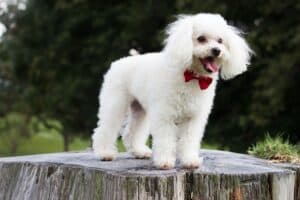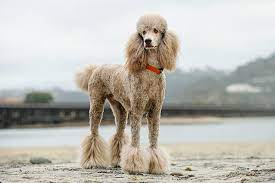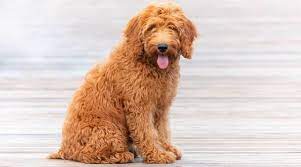Large Breed Dogs That Don’t Shed

Looking for large breed dogs that don’t shed? There are a few things to consider before making your decision.
Large dog breeds that don’t shed are becoming increasingly popular among pet owners who want the companionship of a big dog without the mess.
While all dogs shed some hair, some breeds shed considerably less than others.
Breeds that don’t shed or shed very little include the bichon frise, Yorkshire terrier, Maltese, poodle and Labrador retriever.
These breeds are ideal for people with allergies or those who simply don’t want to deal with a lot of shedding.
Introduction: large dog breeds that do not shed
 A number of large dog breeds do not shed. One such breed is the Poodle, which is not only highly intelligent and easy to train, but also almost hypoallergenic.
A number of large dog breeds do not shed. One such breed is the Poodle, which is not only highly intelligent and easy to train, but also almost hypoallergenic.
Many large breeds have been crossed with the Poodle, including Goldendoodles and Labradoodles. Some hybrids may shed more than their parents, so choosing the right breed is essential.
There are also hypoallergenic dog breeds available, including the Poodle and Irish Spaniels. The Poodle and the Irish Spaniels are both hypoallergenic and lovable dogs, but they do require regular brushing.
Shedding: why it happens and how to prevent it
There are some large breed dogs that don’t shed. But it is important to remember that no dog breed is 100% non-shedding.
While some do shed less than others, it is still important to know what to do to prevent it.
For starters, shedding is the body’s way of getting rid of dead or damaged hair. You can reduce the amount of dead or damaged hair by brushing your dog’s fur regularly.
Stress and trauma can trigger excessive shedding in dogs. This is caused by changes in the environment. Extreme cold or hot weather can cause your dog to shed more than average.
Exposure to bright sunlight may also lead to excessive shedding.
If you notice your dog shedding excessively, consult a vet to determine the cause. A vet can help you figure out a solution that will work best for your dog.
The best large dog breeds that do not shed
 If you want a large dog that doesn’t shed, look for one that doesn’t have a lot of visible hair.
If you want a large dog that doesn’t shed, look for one that doesn’t have a lot of visible hair.
The Standard Poodle is one of the few large dog breeds that does not shed. But they do need to be brushed on a regular basis to avoid mats.
Choosing a large dog that doesn’t shed is important if you suffer from allergies.
Some dogs shed more than others, and heavy shedding can indicate a number of health problems or even a lack of nutrition.
Non-shedding large dogs are also hypoallergenic, which means that they won’t cause allergic reactions if you’re allergic to pet hair.
The French Briard is another great large dog breed that doesn’t shed. This breed originally came from France and is used to herd sheep.
It has also been used by the French army as a messenger and as a search and rescue dog.
Tips for living with a non-shedding dog
 If you’re looking for a large breed dog that doesn’t shed, you may want to consider a Goldendoodle.
If you’re looking for a large breed dog that doesn’t shed, you may want to consider a Goldendoodle.
This breed has an extremely low shedding rate, but it does need a regular brushing.
A rubber curry brush works great for this purpose, and you can use this instead of a hound glove.
This breed is very loyal and playful.
Keeping your dog clean is one of the best ways to minimize shedding. Regular baths remove countless hairs from your dog’s coat.
However, too much bathing can actually increase shedding. You can also reduce shedding by using the right shampoo.
Conclusion
Many owners want a large breed dog that doesn’t shed. Some breeders refer to these dogs as hypoallergenic breeds.
But no dog will be completely hairless, and the majority of dogs shed some amount of hair. This is a biological requirement.
But you can find a non-shedding dog that’s still attractive to you.
One popular breed that doesn’t shed much is the Goldendoodle. It’s easy to find a Goldendoodle for sale in your area.
Goldendoodles have the same coat as Poodles and are known for being hypoallergenic.
However, non-shedding dogs still need regular grooming. This includes regular baths and haircuts every eight to twelve weeks.
Read more about:

